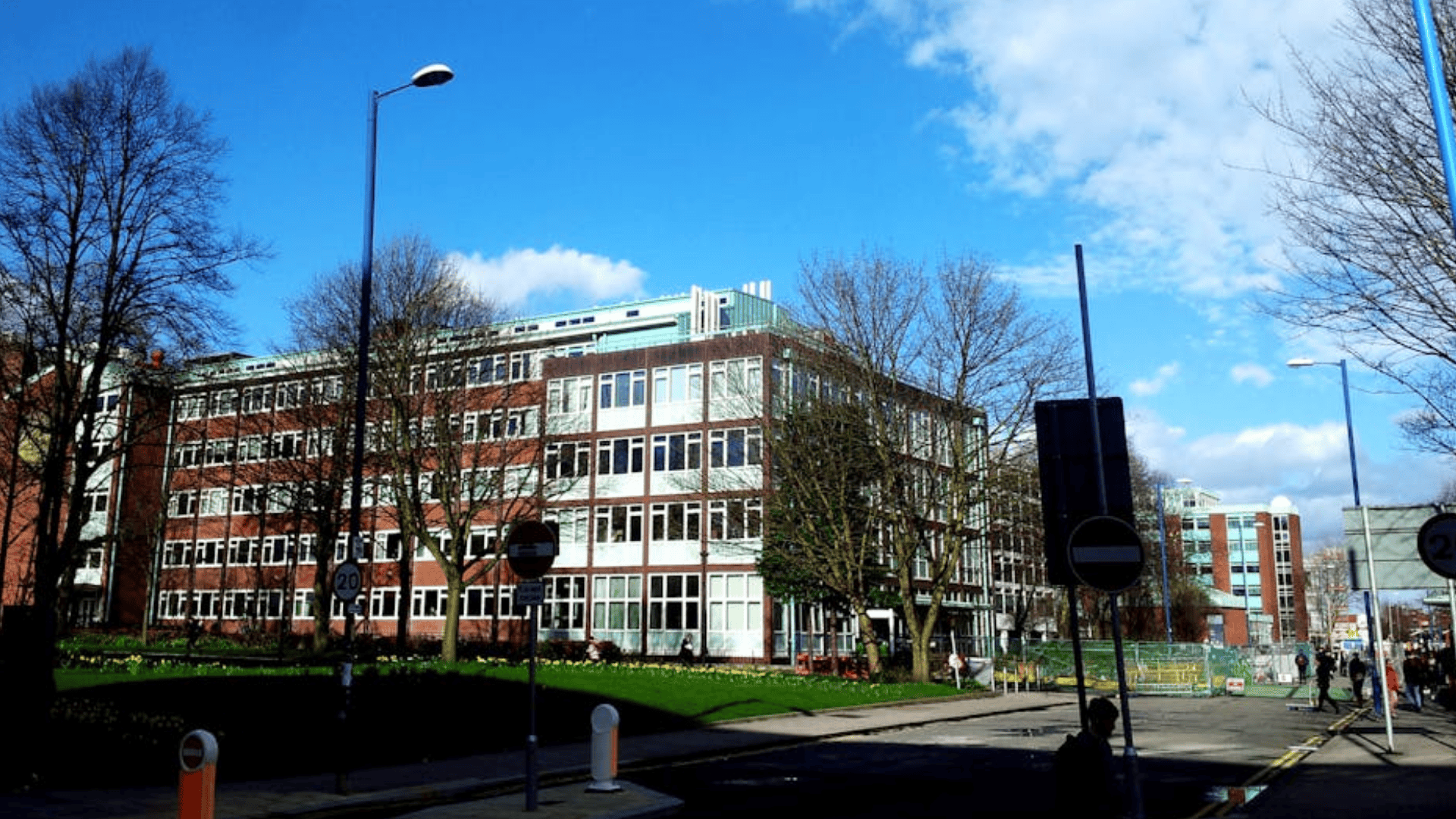Raising Kids Abroad: What Families Need to Know Before Moving to Portugal

When my family moved to Portugal three years ago, my biggest fear wasn’t learning Portuguese or finding a house – it was whether my kids would thrive. Would they make friends? Adjust to new schools? Miss their grandparents too much? Would I be the mom who uprooted her children for some Instagram fantasy that crashed against reality?
Here’s what actually happened: My 8-year-old is now fluent in Portuguese and English, my teenager discovered a love of surf culture I never saw coming, and last week my youngest asked if we could “please never move back” because she can’t imagine life without her Portuguese best friend and weekend beach trips.
I’m not saying moving abroad with kids is all sunshine and pastel de nata (though Portugal has plenty of both). But if you’re a parent dreaming of raising your kids somewhere safer, slower-paced, and more affordable than the suburban grind – Portugal deserves serious consideration. Let me walk you through what we’ve learned.
Why Families Are Choosing Portugal (Beyond the Pretty Pictures)
Portugal’s Instagram appeal is real – those tiled buildings, golden beaches, and waterfront cafes aren’t photoshopped. But pretty doesn’t make a place good for raising kids. What does?
1. Safety You Can Actually Feel
Portugal ranks among Europe’s safest countries, with crime rates significantly lower than the U.S. I remember the first time I watched Portuguese kids – maybe 7 or 8 years old – walking to school alone, no parents hovering, just chatting with each other. Or when I saw children playing outside until 9 PM on weeknights while parents socialized at nearby café tables.
That’s not neglect; it’s Portuguese culture. Kids have real independence here. Our neighborhood in Lisbon has children riding bikes to the corner bakery, walking dogs, playing in parks without helicopter parents circling. As an American mom raised on “stranger danger,” it felt jarring at first. Now? It’s one of the things I treasure most – my kids have autonomy I never imagined giving them back home.
2. Weather that Enables Outdoor Childhood
Portugal averages over 300 days of sunshine annually. Our previous life in New England meant six months of indoor recess, weekend Netflix binges because it was too cold/snowy/dark to play outside, and constant battles to get kids off screens.
In Portugal, our weekends involve beach trips year-round (we go in January – it’s chilly but beautiful), hiking in Sintra, exploring castles, or just playing in neighborhood parks while we grab coffee at an outdoor café. The outdoor lifestyle isn’t something you schedule; it’s just how life works here. My kids’ screen time dropped by half without me implementing a single new rule – they’d rather be outside.
3. Cost of Living that Doesn’t Crush You
Lisbon and Porto are getting expensive, no question. But compared to U.S. major metros? Still 30-40% cheaper. Our family of four lives comfortably on what would be a tight budget back in Boston.
Rent for our three-bedroom apartment in a good Lisbon neighborhood: €1,600/month. Groceries for four: €500-600/month. Kids’ activities – swim lessons, soccer, music classes: €150/month combined. Fresh produce at the weekly market: ridiculously cheap. Dining out: €15-20 per person at nice restaurants, not €30-40.
Healthcare almost feels fake. My daughter broke her arm at a playground last year. Emergency room visit, X-rays, casting, follow-up appointments – total bill: €43. Without insurance. With our private health insurance (€120/month for the whole family), most things are €0-10 copays. That same broken arm in the U.S.? Would’ve been $3,000+ even with insurance.
4. The Slower Pace Everyone Mentions Is Real
Dinner starts at 8 PM. Shops close for long lunch breaks. Things move slower. At first, this frustrated me – why is everything so inefficient?! Then I realized: this “inefficiency” is actually prioritizing life over productivity.
Portuguese culture values family time, long meals, relationships, conversation. My kids eat dinner with us every night now, not scarfing down food before rushing to the next activity. We walk places instead of driving everywhere. We know our neighbors. We have actual conversations as a family. I didn’t realize how burnt out our “efficient” American lifestyle had made us until we stopped living it.
The School Decision (This One’s Big)

Choosing schools for your kids might be the single biggest decision you’ll make about moving to Portugal. We agonized over this for months. Here’s the honest breakdown:
Public Schools (Free):
Portuguese public schools are genuinely good. They’re free, kids are immersed in Portuguese language and culture, and the curriculum is solid. European educational assessments consistently rate Portuguese public education well.
The catch: everything is in Portuguese. Curriculum, teaching, textbooks, friend conversations – 100% Portuguese. For young kids (under 10), this is actually ideal. They’re language sponges at that age. Our youngest enrolled in Portuguese public school at age 6 speaking zero Portuguese. Within three months, she was chatting with classmates. Six months in, she was reading in Portuguese. Twelve months later, she was functionally fluent.
For older kids or teens, it’s harder. They’re more self-conscious, language acquisition slows, and jumping into middle school or high school in a foreign language is genuinely challenging. Our teenager struggled the first year in public school – academically, she could handle it, but socially and emotionally, the language barrier created real difficulty.
Best for: Younger children (under 10) who adapt quickly, families planning to stay in Portugal long-term, families who can’t afford international school tuition.
International Schools (€8,000-€20,000/year):
Portugal has excellent international schools, particularly in Lisbon and Porto. They teach in English following British, American, or International Baccalaureate curricula. Your kids can maintain their home-country academic trajectory without missing a beat.
We chose international school for our teenager precisely for this reason. She’s on track for U.S. college applications, her classes align with what she would’ve taken back home, and the curriculum transition was seamless. Her social adjustment was easier too – the school is full of expat kids and third-culture kids who understand the experience of moving countries.
The downside? Cost. Annual tuition runs €12,000-€18,000 per child at most international schools. That’s comparable to private school in the U.S., but if you’re moving to Portugal partly for affordability, international school tuition can blow up your budget quickly.
Cultural immersion also suffers. International school kids tend to stay in expat bubbles – their friends are other international kids, they speak English at school and often at home, and Portuguese integration happens much more slowly.
Best for: Older children (teens), families uncertain about long-term stay duration, families who can afford tuition, kids planning to return to home country for university.
Private Portuguese Schools (€3,000-€8,000/year):
A middle option: private schools taught in Portuguese but with smaller classes, more resources, and sometimes bilingual programs. These schools attract both Portuguese families seeking better resources and international families wanting Portuguese immersion with more support than public schools provide.
We haven’t experienced this route personally, but expat friends who chose it report good results – their kids became fluent in Portuguese while receiving more individualized attention than huge public schools offer.
Our family’s solution: Split decision. Youngest in Portuguese public school (thriving, fully integrated, fluent in Portuguese). Teenager in international school (maintaining U.S. curriculum, easier social adjustment). It’s not cheap – we pay international tuition for one kid – but it works for our specific situation.
There’s no universal “right answer” on schools. It depends on your kids’ ages, your budget, how long you’re planning to stay, and whether you prioritize Portuguese integration or maintaining home-country curriculum.
Healthcare, Safety, and Peace of Mind

As a parent, healthcare access and child safety dominate your mental worry space. Portugal delivers on both fronts in ways that surprised me.
The Healthcare Situation:
Portugal has universal healthcare (SNS – Serviço Nacional de Saúde). As legal residents, your family gets access. It’s free or very low-cost, quality is generally good, and pediatric care is excellent.
In practice, most expat families use a hybrid system: SNS for routine care and emergencies, private insurance for faster specialist appointments and English-speaking doctors. Private health insurance for our family of four costs €120/month – laughably cheap compared to U.S. premiums.
Our typical experiences: Pediatrician visits through SNS, sometimes short waits but good care. When our son needed an ENT specialist, we used private insurance to get an appointment within a week versus waiting 6-8 weeks through public system. Emergency room visits have been excellent regardless of whether we used public or private hospitals.
Prescription medications cost a fraction of U.S. prices. Children’s antibiotics that would be $40+ in the U.S.? €5-8 here. Even with insurance, we’re spending way less on healthcare than we ever did in America.
Safety Considerations that Matter to Parents:
I let my kids walk to the neighborhood café to buy bread. Alone. This still feels revolutionary to me as an American parent raised in the “every stranger is dangerous” era.
Portugal’s crime rate, particularly violent crime, is extremely low. Children walk to school, play in parks without constant supervision, and have freedoms that would trigger Child Protective Services calls in the U.S. It’s not that Portuguese parents are careless – it’s that society generally feels safer, neighborhoods are walkable and community-oriented, and kids having independence is culturally normal.
That said, be sensible. Tourist areas have pickpockets (we’ve had phones stolen from cafe tables). Don’t leave valuables visible. Teach kids awareness. But the baseline safety level genuinely exceeds most U.S. cities.
Beach Safety Is Serious Business
Portugal’s Atlantic coastline is beautiful but powerful. Rip currents are real. Always swim at beaches with lifeguards (marked with flags), teach kids to respect the ocean, and don’t underestimate how cold the Atlantic can be even in summer. Portuguese people grow up with ocean respect; Americans sometimes don’t.
The Real Talk: Challenges You’ll Face
Instagram won’t tell you this, but moving to Portugal with kids comes with genuine challenges. Here’s what made us cry, fight, and question our decision:
Missing grandparents is the hardest part. Our kids FaceTime with grandparents twice a week, but it’s not the same as Sunday dinners or grandpa showing up at soccer games. My mother-in-law cried when we left. We fly back once a year, but missing family events – birthdays, graduations, just regular presence – hurts.
If you have strong extended family connections, this will be your biggest emotional challenge. Some families handle it by having grandparents visit for extended stays (Portugal is lovely for that). Others ultimately move back because the family separation proves too painful.
Portuguese bureaucracy will test your patience. Getting residency cards, enrolling kids in school, registering with healthcare – everything involves multiple appointments, confusing paperwork, long waits, and processes that make no logical sense. We waited four months for our residence cards after approval. School enrollment required documents we didn’t know existed. Opening a bank account took three visits.
Bring patience, accept that things work differently, and know that other expats have survived this. Facebook groups for Portugal expats became our lifeline for navigating bureaucracy.
Language barriers create real frustration. Even after three years, my Portuguese is… passable. I can handle daily life, but complex medical discussions or school parent-teacher conferences require my Portuguese-fluent daughter to translate or we bring our bilingual friend.
Kids learn Portuguese much faster than adults. Our youngest is fully fluent; my husband and I still struggle. Taking Portuguese classes helped, but becoming fluent as an adult while working and parenting is genuinely difficult.
Social integration takes work. Portuguese families are incredibly close-knit – like, generations living in the same building close-knit. Breaking into established friend groups as an outsider, especially without fluent Portuguese, can be challenging.
Expat communities exist and provide instant friendships with people in similar situations. But if you want authentic Portuguese friendships and cultural integration, expect to work at it. International schools make this easier for kids (automatic friend groups) but can create expat bubbles that limit Portuguese connection.
The adjustment period is real. Our first three months were rough. Everything was hard – figuring out where to buy things, understanding how systems worked, missing familiar foods and routines, dealing with homesickness (ours and the kids’). We called it the “valley of despair” and it was real.
Then something shifted around month four. Portuguese words started making sense. We found our favorite bakery and the owner remembered our order. Kids made friends. Routines established. By six months, Portugal felt like home. By a year, returning to the U.S. for a visit felt oddly foreign.
If you move, expect this arc: initial excitement (first few weeks), overwhelming confusion/frustration (months 2-4), gradual adjustment (months 4-6), and settling in (months 6-12). Knowing this is normal helps when you’re in the hard phase.
The Visa Reality: Making It Legal
Before our move, I spent months researching visa options for families. Portugal offers several paths, but understanding which fits your family situation requires careful evaluation.
Many families use Portugal’s D7 visa, designed for retirees and those with passive income, which allows the entire family to relocate with proof of sustainable income. TheD7 requirements are surprisingly accessible: approximately €820/month per adult and €490/month per child (2025 figures). For our family of four, we needed to show roughly €2,100/month income – doable with remote work, retirement income, rental properties, or investment dividends.
The process took 6-7 months start to finish for us: gathering documents, apostilling everything, Portuguese consulate appointment in the U.S., visa processing, then moving to Portugal and completing the residence permit process in-country. It’s bureaucratic but manageable, especially with immigration lawyer help (we paid about €2,000 for legal assistance – worth every cent).
The D7 requires you to actually live in Portugal – 16 months minimum in the first two years. This isn’t a “get a European passport while living elsewhere” scheme. It’s for families genuinely relocating. After five years, you can apply for permanent residency or Portuguese citizenship (which requires basic Portuguese language proficiency).
Our Real Monthly Budget (Lisbon Area, Family of 4)
Numbers make this concrete. Here’s our actual monthly spending:
- Housing: €1,600 (3-bedroom apartment, nice neighborhood, 15 minutes to city center)
- Groceries: €550 (lots of fresh produce, seafood, Portuguese wine costs nothing)
- Utilities: €140 (electricity, water, internet, phone plans for whole family)
- Transportation: €80 (monthly transit passes for 2, we walk a ton)
- Health Insurance: €120 (private family plan supplementing public healthcare)
- International School: €1,200 (one child, would be €0 if we used only public school)
- Kids’ activities: €150 (swim, soccer, music lessons – way cheaper than U.S.)
- Dining/Entertainment: €300 (eating out, weekend activities, treats)
- Miscellaneous: €200 (clothes, household stuff, random expenses)
Total: €4,340/month (about $4,700)
For comparison, our Boston budget for the same lifestyle was $7,500-8,000/month. We’re saving substantially while arguably living better – more outdoor time, less stress, better food, more family dinners together.
If we had both kids in public school (feasible for younger children), subtract €1,200/month. If we lived outside Lisbon in a smaller town, housing drops to €1,000-1,200 and everything else costs 15-20% less. You can absolutely raise a family here on $3,500-4,000/month comfortably.
So… Should You Do It?
Moving to Portugal with kids isn’t for everyone. It won’t work if you:
– Have extremely close extended family you can’t imagine being away from
– Hate dealing with bureaucracy and inefficiency
– Need everything to work exactly like home
– Aren’t willing to learn any Portuguese
– Want your kids to have a traditional American childhood
But if you’re tired of the rat race, want your kids to grow up bilingual and internationally minded, value safety and outdoor lifestyle over American conveniences, can handle bureaucracy with humor, and dream of raising children somewhere slower-paced and more community-oriented… Portugal might be exactly what you’re looking for.
Our kids are growing up riding bikes to the bakery, speaking two languages, comfortable with change, and experiencing a childhood full of adventure and outdoor play. Some days I miss Target, smooth bureaucracy, and being near family. But watching my children thrive in a safer environment, learning new languages, and experiencing a childhood full of freedom – I’d make the same choice again in a heartbeat.
If you’re dreaming about it, start researching seriously. Join Portugal expat Facebook groups. Visit for a month if you can. Talk to families who’ve made the move. Calculate your budget. Figure out the visa path that fits your situation.
The kids will be fine. Better than fine, probably. It’s us parents who need to get comfortable with the uncertainty, the bureaucracy, and the reality that life will look different than you imagined. But different can be absolutely wonderful.






